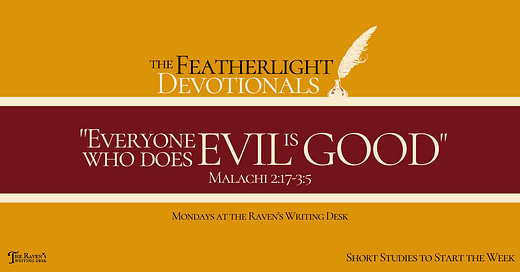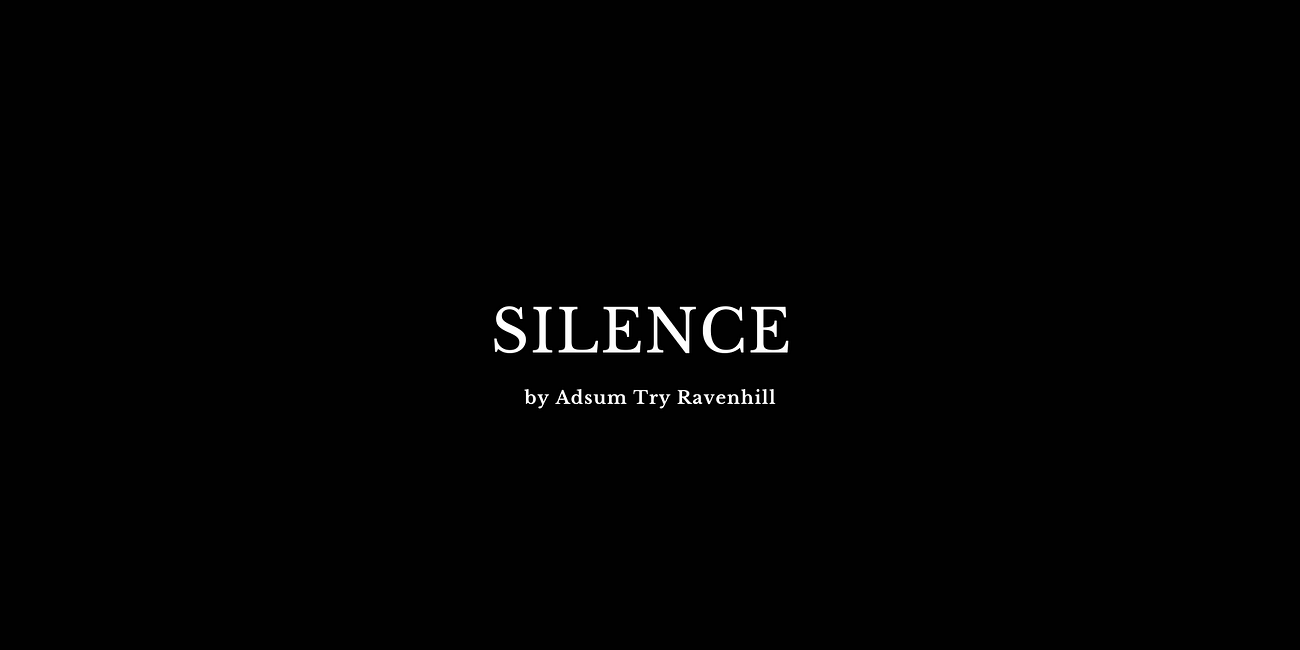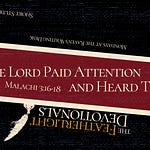One year ago, almost to the day, I wrote a piece named Silence.
I talked about how we can respond well to the evil we see in the world, and why sometimes the best response is no response at all. That in itself is counter-cultural. I’ve heard the word “Tribe” more in the last five years than I did in the previous twenty-five, and it seems like every organisation and individual out there is trying to get me to join their side, their tribe, their idea of what good is. I don’t even need to name examples, because you already have them in your head. I’ll make a definitive statement about one though.
Coffee is better than tea.1
End of story.
Today’s passage takes the world’s sense of justice to court. You and I could name three or four people or organisations right now who actively call evil good. How often do we hear the word, “justice” from those same lips? In Malachi’s day, the people were going a step further. They weren’t just calling evil men good, but saying that these men were righteous in God’s eyes! They then had the temerity, when evil fell upon them, to call upon God to receive justice.
This passage isn’t without hope, however. The people had begun by pointing out the evil in their society, and calling it good. God, in return, pointed out the evil in their society and promised to burn it away, and clean it out. Malachi describes this as the kind of fire a master jeweller might use, and the soap—Fuller’s Soap—that was used to clean all of the imperfections from freshly shorn wool. Then, after refining his people, he would bring them justice against their oppressors.
Our God is good, and he is just.
1. Reading
First, read or listen to the passage quickly. Then, slow down, allowing the words to sink in, as you read it a second time prayerfully.
You have wearied the Lord with your words.
But you say, “How have we wearied him?”
By saying, “Everyone who does evil is good in the sight of the Lord,
and he delights in them.” Or by asking, “Where is the God of justice?”“Behold, I send my messenger, and he will prepare the way before me.
And the Lord whom you seek will suddenly come to his temple;
and the messenger of the covenant in whom you delight,
behold, he is coming, says the Lord of hosts.But who can endure the day of his coming, and who can stand when he appears? For he is like a refiner's fire and like fullers' soap.
He will sit as a refiner and purifier of silver, and he will purify the sons of Levi and refine them like gold and silver, and they will bring offerings in righteousness to the Lord. Then the offering of Judah and Jerusalem will be pleasing to the Lord as in the days of old and as in former years.“Then I will draw near to you for judgement.
I will be a swift witness against the sorcerers,
against the adulterers, against those who swear falsely,
against those who oppress
the hired worker in his wages, the widow, and the fatherless,
against those who thrust aside the sojourner,
and do not fear me, says the Lord of hosts.Malachi 2:17-3:5 ESVUK
2. Silent Reflection
Now, the hard bit. 60 seconds to pause and reflect.
Close your eyes, sit in silence, and consider these questions:
- Have you called Evil good? Did you do so knowingly or out of error?
- Do you call upon God to bring justice, or do you place your hope in flawed people?
- Have you asked God to cleanse you and sanctify you recently?
You don’t need to restrict yourself to these questions.
Just let the Spirit guide you in this time of reflection.
3. Prayer
Let’s now enter into a time of prayer. Here’s a prayer based on today’s passage:
Lord,
The whole world seems to be saying “Everyone who does evil is good.”
Help my weary heart and my fickle mind not to sing along to that chorus.
For none are righteous, not even one.
no one understands; no one seeks for God.2
All we like sheep have gone astray;
we have turned—every one of us—to our own way;3Yet.
Those whom you foreknew, who you also predestined,
are being and will be conformed to the image of the Son of God,
Those whom you predestined, you also called,
and those you called, you also justified,
and those you have justified, you will also glorify.4Behold! You sent your messenger, and he prepared the way before you.
You came, lived, died, and rose again; the veil tore, the temple fell.
You came like tongues of fire, to live within us, we members of your holy temple.
For who can endure the day of your coming?
How could I hope to stand before you?
Creator God, burn away my imperfections, and the remnants of my heart of stone.
Good Shepherd, take your fuller’s soap to my garments and make them resplendent.
Accept my prayer, work in and through me today.Help me to fear you, to love you, to honour you,
to walk the path you have set before me.Amen
Take a moment to continue in your own words. Let this prayer guide you into a deeper conversation with God.
4. Contemplation
This week we have looked outwards at the world a lot, but during this time of contemplation, I want you to look inwards. Every week I ask you to write down just one thing. It could be a word, or a verse, or just something you recall. This week, write down something from today’s study that impacted you personally.
Take a second to reflect.
Write it down.
Each week, refer back to the lines you’ve already written, and over time they will cement more and more in your memory.
Feel free to reach out with any other questions you might have, or leave a comment to discuss further.
Thank you for joining me this morning. May God’s Word continue to guide and bless you throughout your week.
Grace and Peace,
Recommended Media
I went to a good comprehensive school, and I’m considering homeschooling my kids one day.
was homeschooled very well, by his reckoning, and yet his kids attend a classical school. There has been a lot of discourse recently around schooling. This one is very well-balanced. Whatever your views of schools or homeschooling, I think you’ll find this encouraging.C. S. Lewis's Mere Christianity A Biography by George M. Marsden
I haven’t yet finished this book, but it is a great read so far. This is from a series called “The Lives of Great Religious Books” which serve a biographies for important works like Mere Christianity, Aquinas’ Summa, or the Dead Sea Scrolls. Each one talks about the context/s the work was written in, and how it has been received throughout the years. Marsden does a fantastic job here—almost every page has been underlined/written on! Here’s just one example:
I mentioned the article, Silence, earlier in today’s study. Sadly, I think it has only become more relevant in the year since I first released it.
Silence
“Know this, my beloved brothers: let every person be quick to hear, slow to speak, slow to anger; for the anger of man does not produce the righteousness of God. Therefore put away all filthiness and rampant wickedness and receive with meekness the implanted word, which is able to save your souls.”
Romans 3:10-11
Isaiah 53:6
Romans 8:29-30
















Share this post